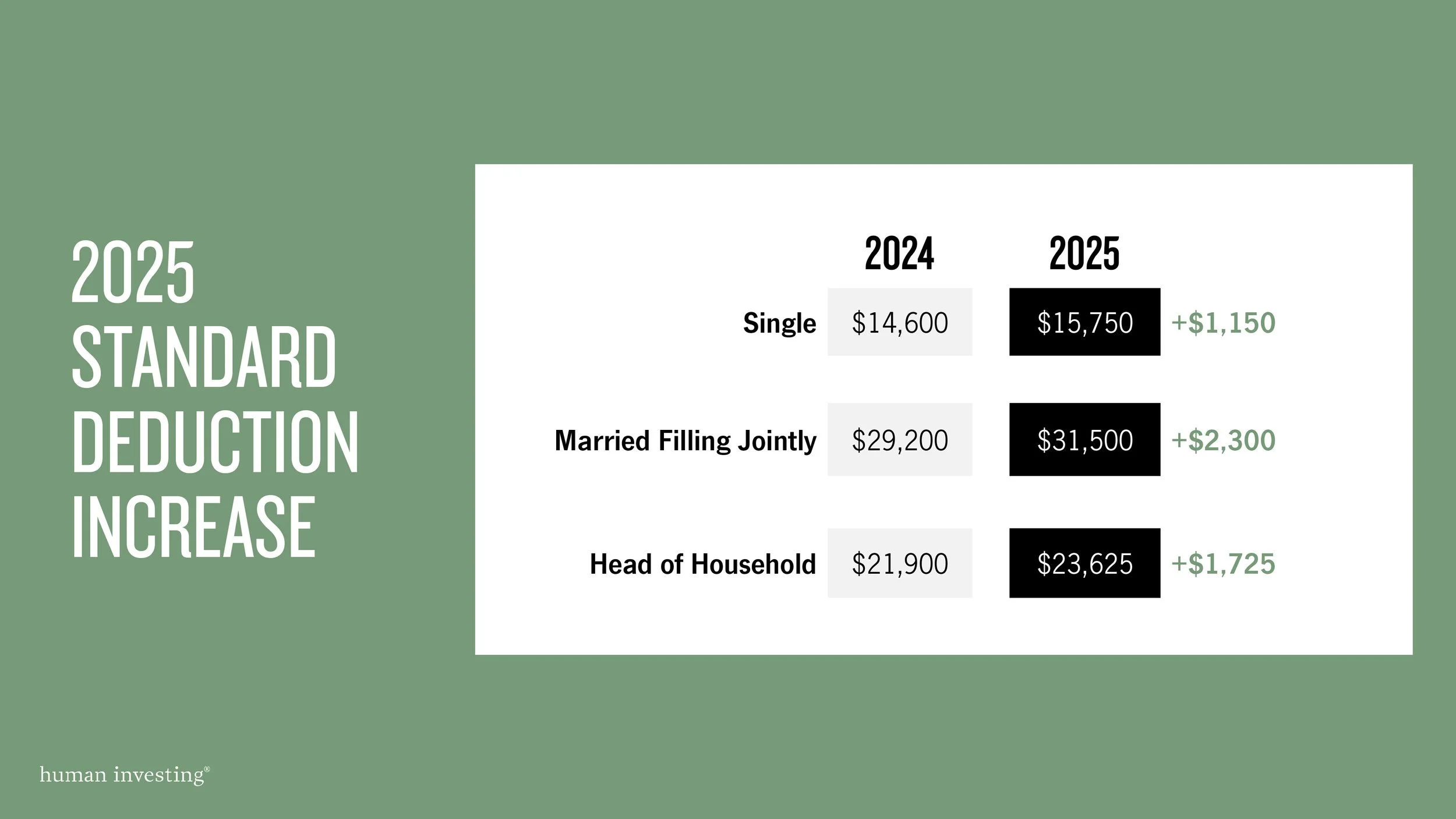The IRS has announced inflation-adjustments and tax code updates for the 2025 tax year. While change may be modest for many households, being aware of the updates can help you with budgeting, planning, and tax-optimization.
What has changed?
The standard deduction amounts have increased for the 2025 tax year.
Additionally, taxpayers who are 65 or older and/or blind may claim an extra standard deduction amount. These increases mean more of your income is shielded from taxation upfront.
Federal income tax brackets continue to be the seven-rate structure.
Note: These are for taxable income (i.e., gross income minus deductions). Items like the standard deduction and any adjustments reduce your taxable income.
What does this mean for you?
For many households, these adjustments yield some benefit — fewer dollars of your income get taxed, and more income is taxed at the lower rates — but they typically aren’t game-changing by themselves.
Portions of Your Income Get Taxed at Different Rates
Because the U.S. uses a progressive tax system, each portion of your taxable income is taxed at the rate for the bracket into which it falls.
For example, a Single filers first $11,925 is taxed at 10%, then the next tier is taxed at 12%, then 22%, etc., as your taxable income rises.
If you can shift income (or deductions) so that more income falls into the lower brackets, you reduce your overall tax burden.
Why the Increase in Standard Deduction & Bracket Thresholds Matters
A higher standard deduction means less of your income is subject to taxation, which is good.
A “bracket creep” adjustment (thresholds rising) means you’re less likely to be nudged into a higher tax rate solely because of inflation, which is good.
The increases are modest in the context of pay raises, cost-of-living increases, and other tax changes (e.g., credits, deductions) so changes to your particular situation may be small.
Final Thoughts
The 2025 tax year brings meaningful updates: a higher standard deduction and higher thresholds mean more of your income avoids higher taxation. But savvy tax planning is still useful, especially if your income is growing, you have complex sources of income, or you have major deductions. Use these updated numbers as a baseline for your planning and then dig into the details with your CPA or advisor.
Disclosure: The information provided in this article is for educational purposes only and should not be interpreted as personalized tax, legal, accounting, or financial advice. While efforts have been made to ensure accuracy, tax laws and regulations are subject to change and may vary based on individual circumstances. Human Investing is an SEC-registered investment advisor; registration does not imply a certain level of skill or training. Before making any financial or tax-related decisions, please consult with a qualified tax professional, CPA, attorney, or financial advisor who understands your individual situation.













